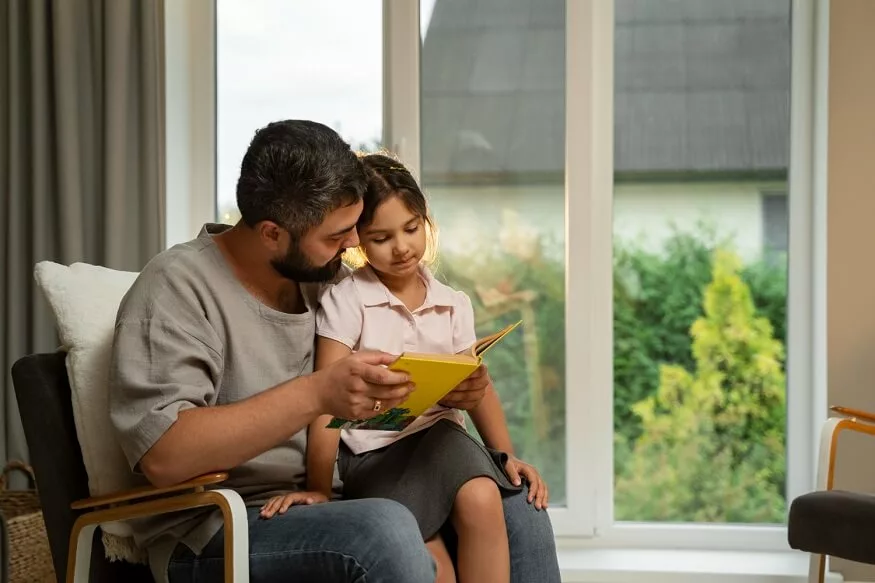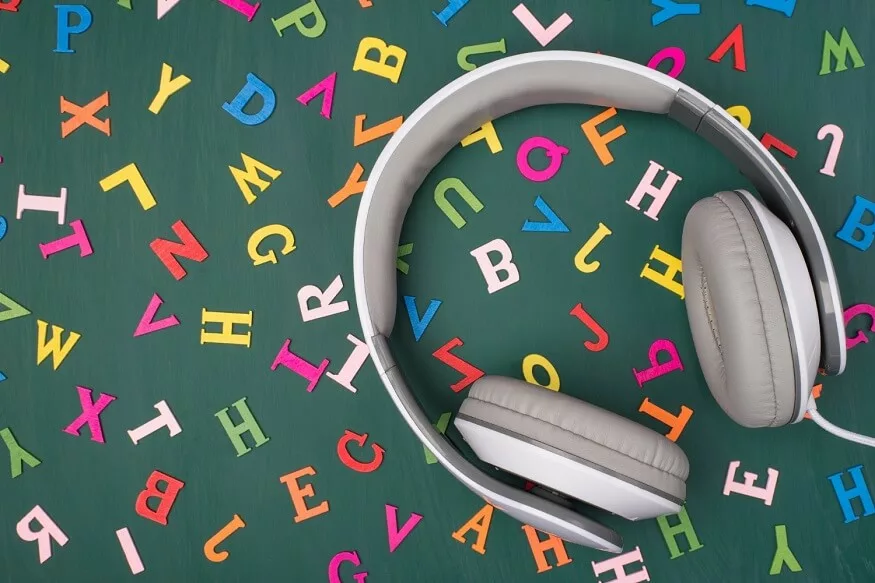Storytime is a loved activity for many families, fostering not only a love for literature but also providing a platform for crucial cognitive and emotional development. Engaging with your child during story time goes beyond simply reading aloud; it involves encouraging active participation, critical thinking, and meaningful discussions. Today we are going to explore 7 important questions to use during story time.
Seven Important Questions to Use During Story Time
Let’s explore the seven questions to ask your child during story time.
1. What are your predictions for what comes next?
Posing this question can ignite your child’s curiosity, motivating them to engage actively in the story. Predicting the storyline fosters critical thinking and allows your child to form hypotheses based on the information presented in the story. It transforms the act of listening into a dynamic mental exercise, enhancing cognitive skills such as deductive reasoning and logical thinking.
Developmental Impact:
- Cognitive Skills: Prediction involves making connections between events, fostering cognitive development. It helps children understand cause-and-effect relationships within a narrative.
- Imagination: This story time question stimulates creativity as children envision various possibilities for the story’s progression.
Example:
You could ask, after reading a story about a character starting on a mysterious journey, “What do you think will happen when this character reaches the hidden cave?”
Also Read: Piaget’s 4 Stages of Cognitive Development Explained
2. Can you relate to any of thе characters in thе story?
Encouraging your child to identify with characters builds emotional connections to the narrative. These story time questions promote empathy and help children understand different perspectives and emotions. It invites them to draw parallels between the characters’ experiences and their own, fostering emotional intelligence and interpersonal skills.
Developmental Impact:
- Empathy: Relating to characters cultivates empathy, teaching children to understand and share the feelings of others.
- Emotional Awareness: This question prompts children to recognize and express their own emotions, contributing to emotional literacy.
Example:
In a story where a character faces a challеngе at school, you might ask, “Have you felt likе thе character when they had to overcome a difficult situation in class? How did you handle it?
3. Can you share the highlight of the story for you?
This question encourages reflection and personal expression. Identifying favourite parts allows children to articulate their preferences, enhancing their ability to communicate and share opinions. It also provides valuable insights into your child’s interests, facilitating the selection of future stories that align with their preferences.
Developmental Impact:
- Communication Skills: Expressing preferences and discussing favourite parts promotes verbal communication and language development.
- Critical Thinking: Reflecting on the story fosters critical thinking skills as children evaluate and prioritize elements of the narrative.
Example:
After finishing a story about a magical adventure, you might ask, “What was your favourite part of the journey? Why did you enjoy that part the most?
4. If you wеrе in thе story, what would you do differently?
This question invites your child to step into the shoes of these characters, promoting imaginative thinking and problem-solving skills. It empowers children to consider alternative actions or outcomes, fostering a sense of agency and encouraging them to think critically about the narrative.
Developmental Impact:
- Creative Thinking: Imagining alternative scenarios enhances creativity and expands a child’s capacity for divergent thinking.
- Decision-Making Skills: Considering different choices in the story contributes to the development of decision-making skills.
Example:
If a character in a story faced any problems, you could ask, “If you play the main role, what would you do in that situation?” “How would your decisions affect the climax?” This question highlights creative thinking, encouraging your child to consider different perspectives and improve their problem- solving skills.
Also Read: How To Teach Critical Thinking to A Child
5. How do you think the story will end?
This question encourages them to consider the overall story, reinforcing their understanding of story structure and order.
Developmental Impact:
- Narrative Understanding: Speculating on the ending enhances comprehension of story structure and sequencing.
- Logical Reasoning: Thinking about the story’s resolution develops logical reasoning skills as children consider the events leading to a conclusion.
Example:
Before reaching the story’s conclusion, you might ask, “How do you think the characters will solve the problem they’re facing? What clues from the story make you think that?
6. What lesson or message do you think the author is trying to convey?
This question encourages children to identify underlying themes or moral lessons in the story. It promotes critical thinking about the author’s intent and fosters discussions about values, ethics, and broader implications within the narrative.
Developmental Impact:
- Critical Analysis: Identifying themes develops analytical skills as children explore the deeper meanings within the story.
- Value Exploration: Discussing the author’s message encourages thoughtful consideration of ethical and moral concepts.
Example:
After reading a story with a clear moral lesson, you might ask, “What do you think the author wants us to learn from the character’s experiences? In what ways can we incorporate that lesson into our daily lives?
Also Read: Assessment of Scholastic Skills through Educational Testing
7. What change would you suggest to make this story more compelling?
Encouraging your child to consider modifications to the story promotes creativity and independent thought. It empowers them to express their preferences and explore alternative plotlines, fostering a sense of ownership over the narrative.
Developmental Impact:
- Creative Expression: Thinking about changes encourages creative expression as children imagine new possibilities for the story.
- Narrative Understanding: Considering modifications enhances comprehension of narrative elements and structure.
Example:
After completing a story, you might ask, “If you could change one thing about this adventure, what would it be? How would that changе thе way thе story unfolds?”
At EuroSchool, we encourage parents to ask questions before making their choice. Beyond the joy of sharing tales, these questions contribute to cognitive development, emotional intelligence, and creative thinking. Story time becomes a vehicle for fostering essential skills that extend far beyond the realm of literature, preparing children for a lifetime of learning, empathy, and critical thinking. As a parent or caregiver, your role in shaping these experiences is pivotal, creating a foundation for a future where the magic of storytelling intertwines with the magic of a child’s developing mind.










